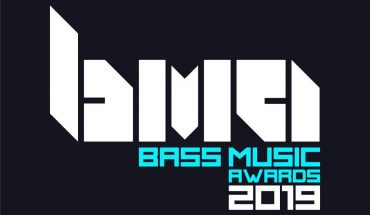As US interest in the UK grime scene gathers pace, we asked resident writer and lover of all things rap-related Allan Nersessian to write us a little think-piece…
Whilst the NSA eves-drop on mobile phones and gather data in large swathes on unsuspecting citizens with careless abandon, US hip-hop artists have seemingly turned their ears to UK shores to carry out their own intel and have stumbled upon something of interest – grime music. As the evolution of urban music continues with force, it is perhaps not a surprise that this very UK-centric art-form has pricked up the ears of some of hip-hop’s American heavyweights.
As with hip-hop that had its origins within soul, funk and rhythm and blues, likewise grime music drew upon other music scenes dominant in the UK at the time such a jungle, drum and bass and garage. In fact, from garage it’s possible to draw two distinct musical births: dubstep and grime. Both became a darker form of garage and whilst dubstep was bass-led and without an MC, grime’s involvement of MC’s harked backed to the sound-system culture of Jamaica (which is in itself a precursor to the birth of hip hop).
It is strange then perhaps that despite the quite distinct parallels in musical style and history that it’s taken nearly fifteen years for US hip hop to sit up and take notice of the movement over here. Dizzee Rascal had some US success after his 2003 debut Boy in Da Corner, but it took another four years for him to feature on a US artist’s track, UGK’s ‘Two Types of B’ in 2007 which, unless you’re a Dizzee purist, you wouldn’t have even heard of. Though now it seems we are entering a new dawn, gone are the days where it was said that the US just couldn’t understand UK rappers and therefore just couldn’t relate. That’s now been replaced by a healthy respect for what this movement is bringing to urban culture and how the two forces can meet and work together.
The pivotal moment that was witnessed by the mainstream audience was when Kanye West decided to perform his single ‘All Day’ with a backdrop of some of UK’s prominent grime MC’s: Skepta, Jammer, Shorty, Krept and Konan, Novelist and Stormzy (who picked up Best International Artist UK at the hugely coveted BET Awards last night). All dressed in black, with a couple of flamethrowers thrown in for good measure, this image of a large group of predominantly black young men on stage at a UK awards ceremony certainly shook the stiff-collared music execs in the room as well as creating an internet storm in the following days. However its symbolism was powerful: here was one of the statesmen of US hip hop inviting a whole host of up-and-coming UK MC’s on to a platform where they were all equal. No boundaries, no cultural differences, no bullshit.
Grime purists may have been up in arms and condemned UK artists for acting like a lapdog to a US counterpart, but it’s hard to jump on this negative bandwagon without acknowledging the positive effect it has and will have for UK artists on the rise.
One artist who seems to be a bridge across the Atlantic is Skepta. Less than a week after appearing onstage with Kanye he released ‘Shutdown’, a blistering track which finds one of the UK’s finest proclaiming “They try to steal my vision / This ain’t a culture, it’s my religion” (the remix featuring the actor Idris Elba is fantastic too). The track also features a certain Drake who has championed Skepta on social media and even acknowledging him as inspiration on his album If You’re Reading This It’s Too Late. Skepta is one of grime’s originals, along with Wiley, who helped craft and launch a whole musical genre through a “do it yourself” attitude and hard-work. “Grime is just a different style of rap” proclaims Skepta who seems to have become the standard-bearer for all things UK grime. Having already collaborated with A$AP Mob’s Young Lord, he’s also been in the studio with Earl Sweatshirt, arguably one of LA’s finest MC’s and lyricists.
Rather than UK artists sticking flaming mics up in the air to gain attention from the US, there’s been a clear sign that it is in fact hip hop’s main ambassadors who have become more in tune with the movement on these shores. As ever, hip hop absorbs what the underground and youth of today are listening to, wearing, reading and in turn try to use the best bits of it to further improve itself, forever evolving and changing its viewpoint and genetic make-up.
What will the future hold? It’s difficult to say whether this is just a fad and that after a few guest appearances from UK artists the US hip hop scene will move in to new waters and drop its grime cousin; on the other hand this could be a new dawn in production landscapes and perhaps more importantly the message that comes from the artists themselves.
Words by Allan Nersessian
@AllanNersessian






